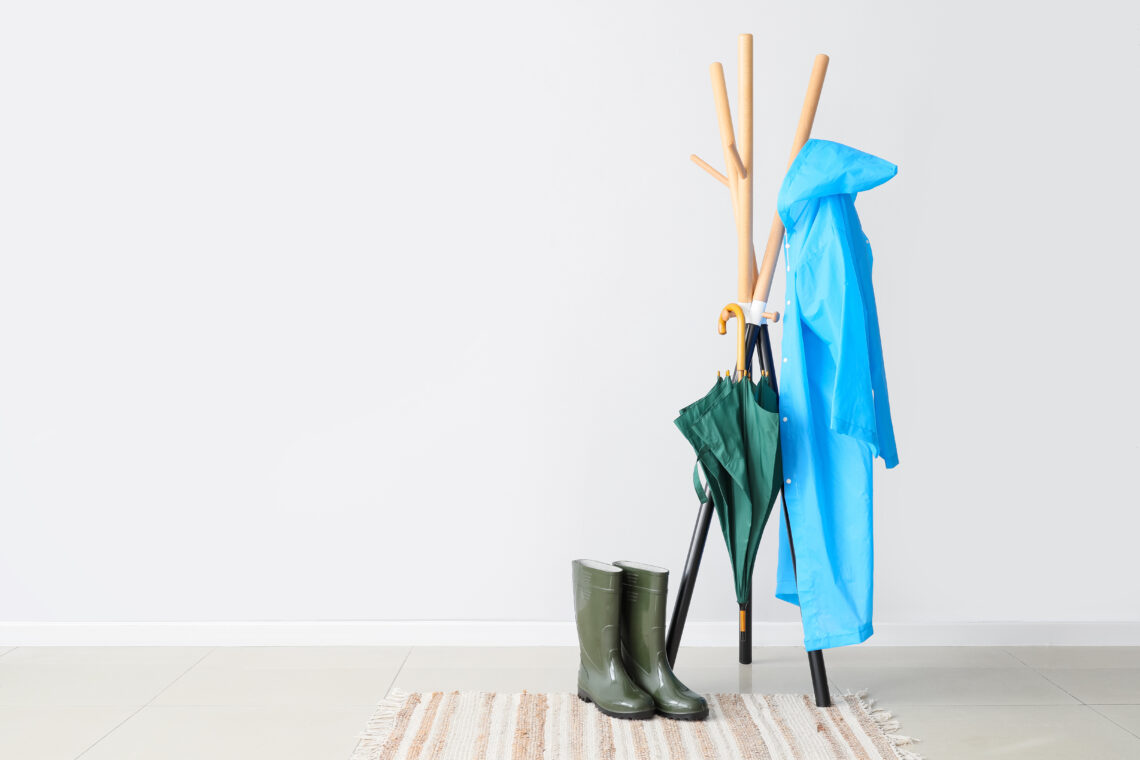In the Cincinnati area, we’re all excited when spring and summer finally arrive. It’s a great time of year here, but one of the downsides of the onset of warmer weather (besides spring allergies!) is the possibility of a tornado. During spring and summer, it’s not uncommon to hear the tornado sirens going off and everyone heading to their basements or the nearest place to seek shelter. My hope is that you never have to experience a storm like this hitting your home, but in the event of a natural disaster and a potential big insurance claim, let me tell you how to best navigate those waters from one who has been there.
The day that it happened to me was March 2, 2012, the second day of a new job. The weather was threatening, and my boss had left for the day, leaving me in charge. With a severe storm warning in effect, my co-workers had left for home and I was left alone in the office watching the radar on my computer. The weather didn’t look good, but my husband advised me to stay at the office, so as not to drive right into it.
I listened to his advice (sort of) and stayed at the office–until our last phone call when he said “We’re getting hit! We’re getting hit!” and the phone went dead. I have never driven so recklessly before, but I was in a panic to get home. The final road to my house was blocked by an overturned semi, but I wove my way through traffic to get to my driveway. As I approached my house, I was relieved to see my husband standing outside.
The relief of seeing my husband alive and well was overwhelming, until I looked at the house: the garage was gone, the roof was open, there was insulation in every broken tree. Our AC unit was tossed into the front yard. The hot tub was overturned halfway down the hill. The decks were in pieces and piled up against the house. The house, along with my husband and I, were all devastated.
The shock of it all didn’t wear off for a few days, and I was only dimly aware that a cadre of people showed up to help. Friends arranged for storage units, a moving truck and a whole crew of people who salvaged what they could from the house and stored it away.
In retrospect, there were things that we could have done both as prevention and in the immediate aftermath that would have helped us. As always, hindsight is 20/20, so that is why I am sharing these tips with you. Perhaps our experience can help someone else in the future.
Tornado Tip #1: Take a video of every room in your house and open each cupboard door and drawer and video or photograph the contents.
This is something you can do right now to help you in the future, whether it’s a tornado or fire or something else that requires you to file a claim with your insurance. Your insurance adjuster is going to give you forms to fill out for all the household items you lost. They want to know about every pair of socks, spatula, vase, lamp, picture, desk, linens, office supplies, etc. etc. etc. I tell you – that list goes on and on when most of your belongings end up in the Ohio river. It was MONTHS afterwards that I would go to reach for something like a rolling pin, only to remember that I didn’t have one anymore and I didn’t put it on my inventory list.
The insurance company also asked us to list where and when we bought each item, how much we paid for it, and how much it would cost to replace it. Who has that information for every knick knack, dish and pan? We did get a little grace and the “when and where” part was mostly glossed over, but the internet was my friend in finding out how much it cost to replace all those items. Our list ended up being over 50 pages long. It’s easier to do if you can review pictures and videos.

Tornado Tip #2: Don’t just do something thinking that any action is better than none.
The upholstered furniture that our helpers so thoughtfully moved to storage started to mold in just a few days, because not only did it rain on it all during the tornado, it actually snowed the following day.
Our important paperwork that hadn’t been blown away was stuffed into a box by some good-meaning person and placed somewhere in storage where it was really difficult to find when we needed it.
The lesson? Taking everything out of the house right away made it difficult to remember what was stored and what was gone or damaged. Despite the good intentions, our immediate action made things worse. However, the insurance company WILL want you to take “reasonable precautions” to insure more damage isn’t done in the immediate aftermath. For example, they may want you to tarp your roof. Be aware that you will need to be involved and proactive but also be smart. It’s hard to think straight when your life has been turned upside down.
Tornado Tip #3: You do NOT have to take the first offer that your insurance adjuster gives you.
Within 72 hours we had a guy from our insurance company offering to settle our entire claim for $150,000. Our list of items lost in the tornado was almost $150,000 alone! We had to get a structural engineer to prove that the house was a tear-down and couldn’t be repaired, and get certification from FEMA that it was destroyed. We had to be a bit persistent, but we ended up with a much, much higher settlement just by knowing what our house and contents was worth, and knowing that our insurance covered us up to that value. Be your own advocate and if necessary, bring in reinforcements.
Tornado Tip #4: Know what it would cost to rebuild your home and purchase all of the contents.
Check that your insurance covers the cost of rebuilding and replacing your belongings. And, most importantly, make sure that all your insurance is replacement cost insurance and not actual cash value. Most of the furniture in our home was about 5 years old. That $2000 couch now cost $3000 to replace and if you have replacement cost insurance, you will get the $3000. But that $2000 couch was worth only about $250 after five years of use. If we had Actual Cash Value insurance, we would’ve received only the $250. You try to replace a couch for that! And that’s just one item. So make sure you’re covered adequately!
And on a side note – all landscaping and hardscaping is usually not covered. We had just spent a ton of money and time on finalizing several landscaping beds, sodding the yard, putting in a retaining wall and although none of those things went unscathed, we did not get compensated for any of it.
Tornado Tip #5: Take weather warnings seriously.
We used to be that couple that stood on the front porch to watch for the tornado when there was a warning. Now, we head to the basement because we have seen what can happen.



